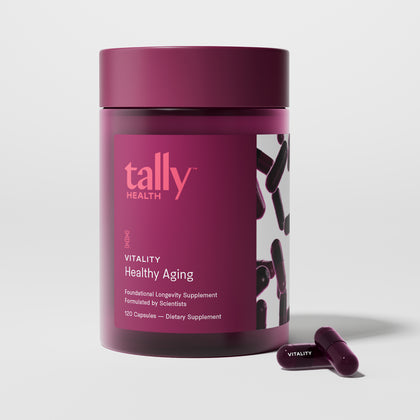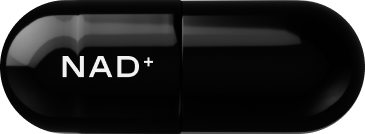

In the search for nutrients that support healthy aging, spermidine has emerged as a star compound. This naturally occurring polyamine—found in foods like wheat germ, mushrooms, and aged cheese—has shown compelling evidence of extending lifespan and improving cellular function in a wide range of organisms. But what exactly are the benefits of spermidine, and why is it generating so much interest in the longevity field?
Let’s explore the science behind this powerful molecule and how it may help support long-term vitality.
What Is Spermidine?
Spermidine is a polyamine, a type of molecule essential for cell growth, proliferation, and survival. It is present in every living cell and plays a critical role in regulating important processes like:
Autophagy (cellular clean-up)
DNA stability and repair
Mitochondrial function
Inflammatory response regulation
While our bodies naturally produce spermidine, levels decline with age—just as many hallmarks of aging begin to accelerate.
Spermidine Health Benefits: What the Research Shows

Research from animal models shows that spermidine promotes a variety of beneficial effects, including cellular health, cardiovascular health, cognitive function, suppressing inflammation, and potential lifespan extension. Recent findings suggest that scientific research supports these benefits, highlighting spermidine's role in longevity and overall health.
1. Stimulates Autophagy—The Body’s Cellular Renewal System
One of spermidine’s most well-documented effects is its ability to induce autophagy, a cellular recycling process that removes damaged proteins and organelles, thereby supporting cellular homeostasis. This process is crucial for longevity and resilience against age-related decline.
In animal models, spermidine-induced autophagy has been linked to:
Extended lifespan in yeast, worms, flies, and mice
Protection against neurodegeneration
Improved cardiac health and immune function
2. Supports Cardiovascular Health and Blood Pressure Regulation
Spermidine supplementation has been associated with cardiovascular benefits including cardioprotective effects, including improved heart muscle elasticity and function. In a notable study, dietary spermidine intake correlated with reduced blood pressure and lower cardiovascular mortality in humans.
This effect may be due to spermidine’s role in reducing inflammation, enhancing nitric oxide availability, and improving mitochondrial efficiency.
3. Neuroprotection and Cognitive Support
Brain aging is often accompanied by a buildup of cellular debris and mitochondrial dysfunction. Spermidine helps clear misfolded proteins and supports mitophagy —the removal of damaged mitochondria—which are both key to maintaining neuronal health.
Emerging human data suggest that spermidine supplementation may support memory performance in older adults, potentially by reducing neuroinflammation and promoting synaptic plasticity.
4. Immune Function and Reducing inflammation
Aging is associated with a chronic, low-grade inflammatory state known as “inflammaging.” Spermidine has been shown to help regulate the function of immune cells and reduce pro-inflammatory cytokines. Interestingly, autophagy can also play an important role in how the immune system responds to threats. Spermidine and polyamines can suppress inflammation by reducing the production of pro-inflammatory cytokines and mitigating chronic inflammatory responses. Chronic inflammation can impair wound healing and tissue regeneration, but spermidine's anti-inflammatory effects may support tissue repair. These effects may help explain its protective effects (in animal models) in diseases associated with immune dysfunction, including cancer and cardiovascular disease.
5. Promotes Healthy Longevity in Small Mammals
In mice, spermidine supplementation significantly increased median lifespan. These findings are linked to improved autophagy, cardiovascular resilience, and gene expression profiles associated with youth.
While human longevity studies are still ongoing, the consistency of data across multiple organisms has made spermidine one of the most promising molecules in longevity science.
How to Supplement with Spermidine

Although there are plenty of nutritious and delicious spermidine-rich foods like wheat germ, soybeans, aged cheese, and certain fruits. Incorporating spermidine into your diet through these foods, as well as supplements, can help boost your intake. A diet rich in fiber and fermented foods also supports healthy gut microbiota and can increase natural spermidine production. Typical dietary intake often falls below the levels used in scientific studies—that's where high-quality spermidine supplements come in.
For example, Vitality by Tally Health contains 900 mcg of spermidine, along with the other powerful ingredients with beneficial effects Calcium Alpha-Ketoglutarate, Quercetin, Fisetin, and Trans-resveratrol. This scientifically informed formula is designed to promote cellular health, support autophagy, and help you age on your own terms.
When considering a new supplement regimen, it’s important to consult a healthcare provider to ensure it fits your individual needs. Remember, spermidine supplements should be part of a balanced supplement regimen and are meant to complement, not replace, a healthy diet.
Is Spermidine Safe?

Current research suggests that spermidine supplementation is well-tolerated and safe, even at doses higher than those found in typical diets. Maintaining optimal spermidine levels is important for human health, as it supports cells in functioning optimally. Still, anyone considering new supplements should consult their healthcare provider, especially if managing a chronic condition or taking medications.
The Bottom Line - Benefits of spermidine
Spermidine isn’t just a buzzword—it’s a well-researched compound with the potential to impact many hallmarks of aging. From autophagy and immune regulation to cardiovascular and brain health, spermidine’s benefits in animal models are wide-ranging and increasingly backed by science.
If you're looking to support your long-term cellular health, a high-quality supplement like Vitality by Tally Health offers a smart, science-backed way to ensure you're getting enough of this powerful molecule.

What is spermidine?
Spermidine is a polyamine, a type of molecule essential for cell growth, proliferation, and survival. It is present in every living cell and plays a critical role in regulating important processes like autophagy, DNA stability and repair, mitochondrial function, and inflammatory response regulation.
What are the health benefits of spermidine?
Research shows that spermidine promotes cellular health, cardiovascular health, cognitive function, immune regulation, and potential lifespan extension. In animal models, spermidine has been linked to extended lifespan, improved cardiac health, neuroprotection, and reduced inflammation.
Is spermidine safe to take as a supplement?
Current research suggests that spermidine supplementation is well-tolerated and safe, even at doses higher than those found in typical diets. However, anyone considering new supplements should consult their healthcare provider, especially if managing a chronic condition or taking medications.
Recommended Supplements
Citations
López‑Otín, C., Blasco, M. A., Partridge, L., Serrano, M., & Kroemer, G. (2013). The hallmarks of aging. Cell, 153(6), 1194–1217. https://doi.org/10.1016/j.cell.2013.05.039
Madeo, F., Eisenberg, T., Pietrocola, F., & Kroemer, G. (2018). Spermidine in health and disease. Science, 359(6374). https://doi.org/10.1126/science.aan2788
Eisenberg, T., Abdellatif, M., Schroeder, S., et al. (2016). Cardioprotection and lifespan extension by the natural polyamine spermidine. Nature Medicine, 22(12), 1428–1438. https://doi.org/10.1038/nm.4222
Wirth, M., Benson, G., Schwarz, C., et al. (2018). The effect of spermidine on memory performance in older adults at risk for dementia: A randomized controlled trial. Cortex, 109, 181–188. https://doi.org/10.1016/j.cortex.2018.09.014
Hofer, S. J., Davinelli, S., Bergmann, M., et al. (2021). Spermidine-induced hypusination preserves mitochondrial and cognitive function during aging. Autophagy, 17(7), 2037–2039. https://doi.org/10.1080/15548627.2021.1933299
Zhang, H., Alsaleh, G., Feltham, J., et al. (2019). Polyamines control eIF5A hypusination, TFEB translation, and autophagy to reverse B cell senescence. Molecular Cell, 76(1), 110–125. https://doi.org/10.1016/j.molcel.2019.08.005
Kiechl, S., Pechlaner, R., Willeit, P., et al. (2018). Higher spermidine intake is linked to lower mortality: A prospective population-based study. American Journal of Clinical Nutrition, 108(2), 371–380. https://doi.org/10.1093/ajcn/nqy102
Minois, N., Carmona-Gutierrez, D., & Madeo, F. (2011). Polyamines in aging and disease. Aging, 3(8), 716–732. https://doi.org/10.18632/aging.100361
Schröder, B., Hofer, S. J., Zimmermann, A., et al. (2021). Dietary spermidine improves cognitive function. Cell Reports, 35(10), 109107. https://doi.org/10.1016/j.celrep.2021.108985
Soda, K. (2011). Polyamine metabolism and gene methylation in conjunction with one-carbon metabolism. International Journal of Molecular Sciences, 12(9), 5941–5956. https://doi.org/10.3390/ijms19103106
Puleston, D. J., Buck, M. D., Klein Geltink, R. I., et al. (2019). Polyamines and eIF5A hypusination modulate mitochondrial respiration and macrophage activation. Cell Metabolism, 30(2), 352–363.e8. https://doi.org/10.1016/j.cmet.2019.05.003
Wirth, M., Schwarz, C., Benson, G., et al. (2021). Effects of spermidine supplementation on cognition and biomarkers in older adults with subjective cognitive decline. Alzheimer’s Research & Therapy, 13(1), 76. https://doi.org/10.1186/s13195-019-0484-1
Nishimura, K., Shiina, R., Kashiwagi, K., & Igarashi, K. (2006). Decrease in polyamines with aging and their ingestion from food and drink. Journal of Biochemistry, 139(1), 81–90. https://doi.org/10.1093/jb/mvj003
Pietrocola, F., Lachkar, S., Enot, D. P., et al. (2015). Spermidine induces autophagy by inhibiting the acetyltransferase EP300. Cell Death & Differentiation, 22(3), 509–516. https://doi.org/10.1038/cdd.2014.215











